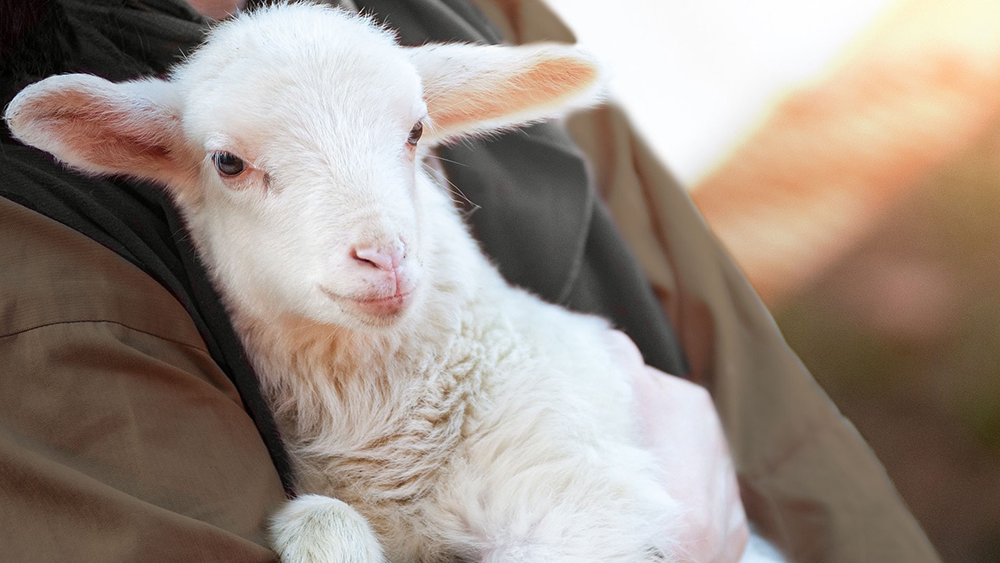Beginner Lesson 2 -
The Lost Sheep
Grammar Exercise

In this grammar exercise, we’ll learn about the English future simple tense. Native speakers use this tense a lot! This is the fifth part of Beginner Lesson 2, or you can do it as an individual grammar lesson.
The Future Simple Tense with “Will”
One way to talk about the future in English is to use the auxiliary verb will plus the base form (or “dictionary form”) of a verb.
Here is a verse from the Bible passage.
The helping verb “will” is in orange.
The verb in base form is in gold.
- And when you find it, you will be so glad that you will put it on your shoulder… (Luke 15:5a CEV, bold added)
This is the future simple tense in English. It is very easy to form! The verb does not change for any subject:
I will be
you will be
he/she/it will be
we will be
they will be
Here are some more examples:
- then you will call in your friends and neighbors and say, “Let’s celebrate!”… Luke 15:6b CEV)
- …You will eat and drink with me in my kingdom… (Luke 22:30a CEV)
At the end of this lesson, you can download a grammar sheet for more practice.
Now, let’s learn how to make a question with the future simple tense.
Making a Question with the Future Simple Tense
When you make a question in the future simple tense, you put the subject between the helping verb (will) and the verb. Here are some more examples:
- “Will you take me to those Amalekites?” David asked… (1 Samuel 30:15)
- What will you gain, if you own the whole world but destroy yourself?… (Matthew 16:26)
In our passage for this lesson, there is also a question in the future simple tense:
- If any of you has 100 sheep, and one of them gets lost, what will you do? (verse 4a)
Making a Negative Sentence with the Future Simple Tense
To make a negative sentence with the future simple tense, use the word “not” after the helping verb “will.” This phrase, “will not,” is almost always made into the contraction “won’t.”
Here are two sample verses:
- And so, we won’t be afraid!… (Psalms 46:2) (we will not be)
- The sky and the earth won’t last forever, but my words will. (Luke 21:33) (the sky and the earth will not last)
Making a Question With “Won’t”
Sometimes a question begins with “won’t.” These questions have a different meaning than a question that begins with “will.” Look at these examples:
- Will you go to the store?
- Won’t you go to the store?
What is the difference between these two questions?
Question 1 is a simple question that you can answer with “yes” or “no.”
- Yes, I will go to the store.
- No, I won’t go to the store.
Question 2 is a request. The expected answer is “yes.” You could also say, “Please, will you go to the store?”
- Won’t you go to the store?
- Yes, I will go to the store.
Here are more examples of questions with “won’t.” One of the examples is from today’s lesson. The expected answer is “yes.”
- Won’t you leave the 99 in the field and go look for the lost sheep until you find it? (Luke 15:4b)
- …Won’t she light a lamp, sweep the floor, and look carefully until she finds it? (Luke 15:8b)
- Won’t you give us fresh life and let your people be glad because of you? (Psalms 85:6)
Practice Makes Perfect!
Now you know the basics of the English future simple tense. There are other ways to talk about the future in English, and we’ll learn those in another lesson.
For more practice, do this short grammar worksheet on the future simple tense. Click this button for the PDF.
When you are done with the grammar worksheet, go to the Writing Exercise, where you will get even more practice with the future simple tense!
Click this button to go back to the Speaking Exercise.
